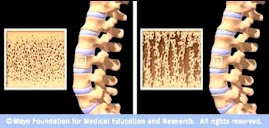“Some studies suggest high blood
levels of the amino acid homocysteine may be linked to lower bone density and
higher risk of hip fracture in the elderly. Vitamins B6 and B12, as well as
folic acid, play a role in changing homocysteine into other amino acids for use
by the body, so it is possible that they might play a protective role in
osteoporosis. Research is ongoing as to whether supplementation with these B
vitamins might reduce fracture risk4,5.”
4. McLean RR, Jacques PF, Selhub J, et al. (2004)
Homocysteine as a predictive factor for hip fracture in older persons. N Engl J
Med 350:2042-49
5. Morris MS, Jacques PF, Selhub J (2005) Relation between homocysteine and
B-vitamin status indicators and bone mineral density in older Americans. Bone
37:234-42
WebMD ranks the effectiveness of vitamin B12 for various
uses. The rankings are “effective for,” “likely effective for,” “possibly
effective for,” “possibly ineffective for,” and “insufficient evidence for.”
According to webMD, vitamin B12 is likely effective for “high
level of homocysteine in the blood (Hyperhomocysteinemia).” “Taking vitamin B12
by mouth, along with folic acid and sometimes pyridoxine (vitamin B6), can
lower blood levels of homocysteine.”
http://www.webmd.com/vitamins-supplements/ingredientmono-926-vitamin%20b12.aspx?activeingredientid=926&activeingredientname=vitamin%20b12



No comments:
Post a Comment